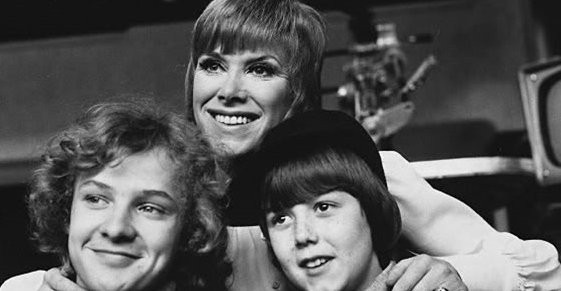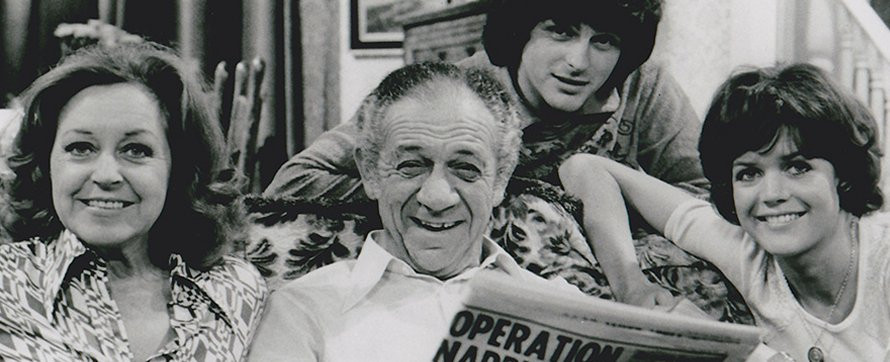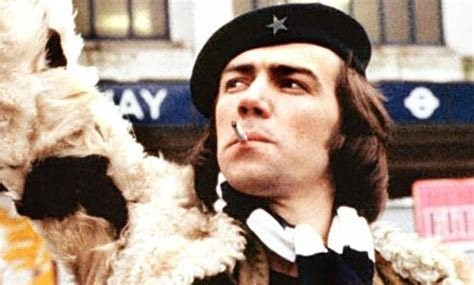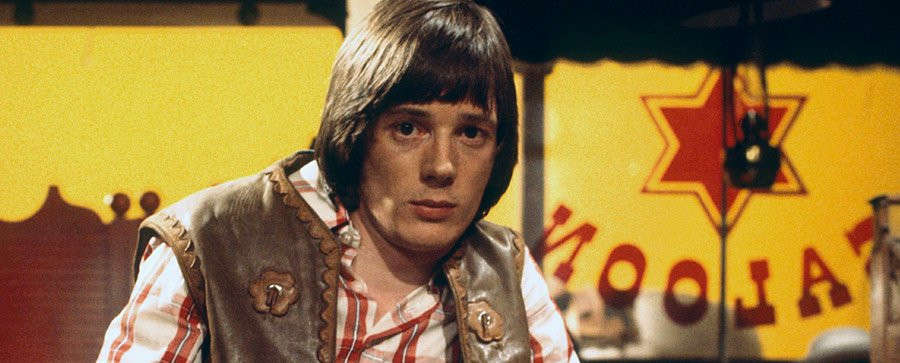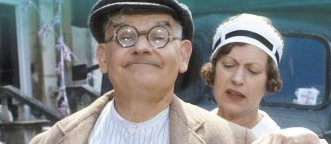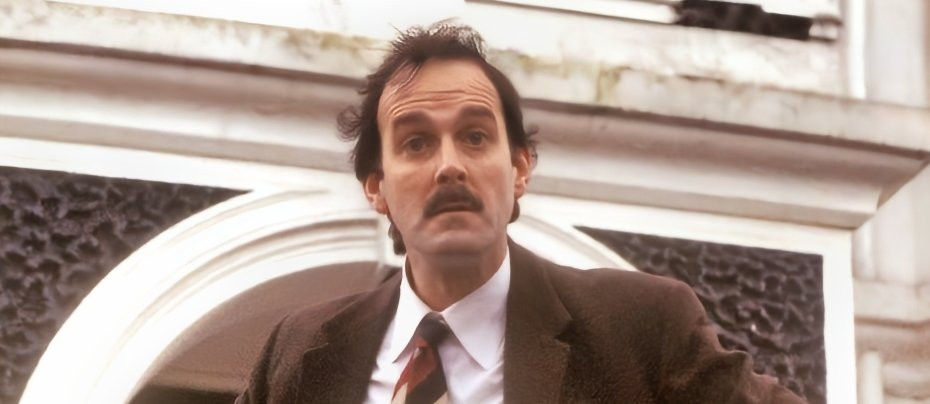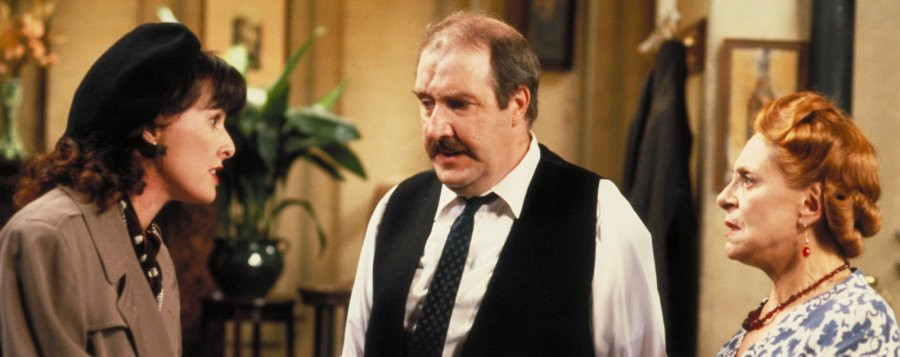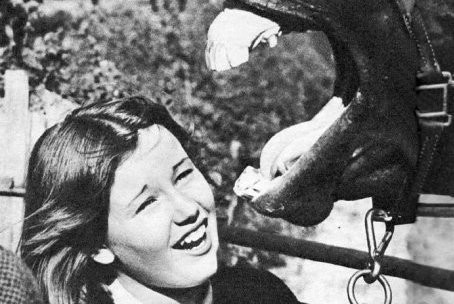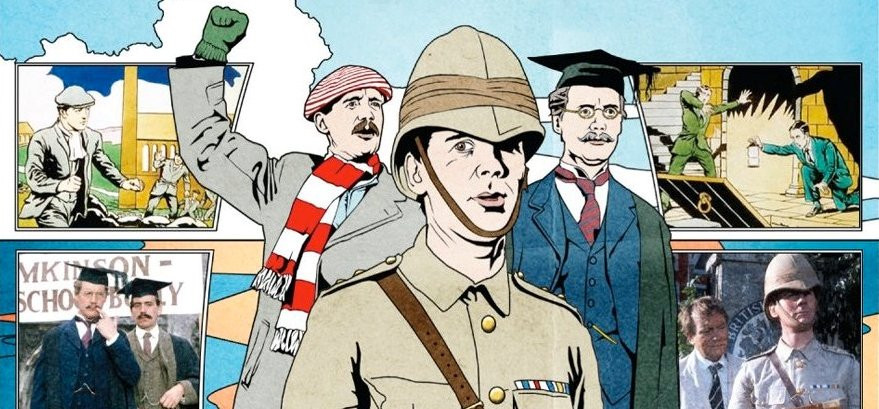
Ripping Yarns
1977 - United KingdomMuch in the same way that The Comic Strip would parody the antics of Enid Blyton's Famous Five in the 1980s, so Ripping Yarns would spoof the plucky Britishers of yesteryear in a series of stand-alone comedies which parodied the 'golden age of the Empire.' Ripping Yarns was presented in the style of Boys Own adventure stories when all a chap needed was a stiff upper lip, a healthy dash of derring-do and a corking left hook to see off Johnny Foreigner!
By 1974 the days of Monty Python were clearly numbered and the stars of the series were turning to pastures new. John Cleese had not appeared in the final run and by the autumn was busy recording the pilot of a new sitcom; Fawlty Towers. Eric Idle had Rutland Weekend Television lined up for 1975 while Graham Chapman was co-writing the pilot for a series with Douglas Adams; Out of the Trees (which after a single airing in January 1976 was never heard of again). Michael Palin and Terry Jones were writing sketches for The Two Ronnies but had no plans of their own series when Palin was head-hunted by BBC light entertainment producer Terry Hughes. Palin, along with Jones, pondered a number of ideas. Among the first was Tomkinson's Schooldays, a spoof of Tom Brown's Schooldays. Written by and starring the duo, the story featured young Tomkinson's attempts to escape from the brutal Graybridge public boarding school in 1912 where pupils are shot for disobedience and regularly nailed to the walls for fun. The one-off programme was broadcast on 7 January 1976 on BBC2.
Audience reaction to the comedy was favourable and on the strength of it the BBC commissioned a series of six further episodes (although ultimately, only five were made). The pilot was repeated on Tuesday 20 September 1977 with new opening titles to reflect the series overall title which Jones (who didn't appear in any of the other episodes) borrowed from an annual entitled 'Ripping Tales'; a book that Palin had originally given to Jones as a gift. One of the things that both Palin and Jones insisted on for the full series was that it be shot on film rather than video tape. This required the film to be screened to an audience in order to record their reaction and mix the laughter onto the soundtrack before transmission. However, as Tomkinson's Schooldays had originally been recorded in studio before an audience it didn't have to go through this process. The second episode, The Testing of Eric Olthwaite (along with two other films) had its laughter track recorded on 26 September and was dubbed overnight so it would be ready for transmission the following day. The episode told the story of an important moment in the life of Eric Olthwaite - a bank manager and a stupefyingly boring Yorkshireman.
Episode three was Escape from Stalag Luft 112b, a First World War tale of British prisoners of war and one man's frustrations at the bureaucratic red tape he has to go through in order to have his escape plans approved. Murder at Moorstones Manor, an Agatha Christie spoof set in 1926 was broadcast on 11 October while Across the Andes by Frog, broadcast the following week, told the tale of Captain Walter Snetterton and his amphibian assault on the Andes. The last episode in the series was The Curse of the Claw, a black magic tale of a Burmese 'sacred claw' and the curse that befalls anyone who has the misfortune to possess it. By episode three (Escape from Stalag Luft 112b) audiences had grown to a healthy size and it was clear that the series would have a repeat showing. However, Palin and Jones were not entirely happy with the redubbing of the laughter tracks on the filmed episodes and asked for them to be replaced with more suitable soundtracks before the repeats were shown. The repeats began on Friday 21 April 1978 with Murder at Moorstones Manor.
By now, the BBC was keen to make a second series. The original plan was for six more episodes, but the BBC cut this back to three because of the high costs of redubbing the original series. The first of the new series was broadcast on 10 October 1979. Winfrey's Last Case had begun life as a smuggling tale called 'The Wreck of The Harvey Goldsmith' before turning into a Bulldog Drummond pastiche about a suave adventurer who thwarts a plot by the Germans to start World War One a year early! The next story is perhaps one of the best remembered of all the Ripping Yarns series. Golden Gordon(which had an audience of 7 million viewers) is about Gordon Ottershaw and his obsessive support of his local football team Barnstoneworth United, who's golden era is now long gone as the club slips from embarrassing defeat to even more embarrassing defeat, which in turn leads to Gordon's violent reactions. The story gave Palin an opportunity to use the names Bunn, Wackett, Buzzard, Stubble and Boot - one of the original working titles for Monty Python's Flying Circus and used in the early stages of that show's production in 1969. The episode also features a walk-on cameo by John Cleese.
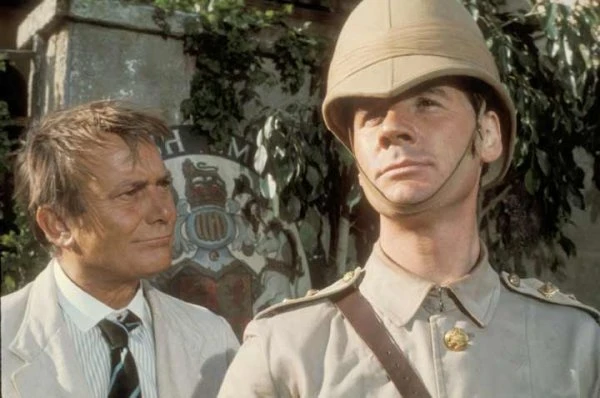
The final Ripping Yarns was Roger of the Raj a homage to the British Empire in the Punjab. The tale concerns itself with a family who are obsessed with maintaining the manners and morals of Britain whilst living in India.
Michael Palin at that time expressed an interest in seeing the last three episodes of Ripping Yarns edited into a 90 minute feature film for release in US theatres. With high production values (the fact that the series had been shot on film) as well as a growing popularity in the USA for British situation comedy, Palin felt this was an excellent opportunity. The BBC, however, did not share his enthusiasm, and were on the verge of selling the series to the US PBS market via Time Life. At the time of the final series transmission in the UK, ITV had been experiencing industrial action that had taken many of its shows off the air. But this was resolved by the last Ripping Yarnsepisode which was transmitted against the commercial channels revival of a series that originally started the BBC in the 1950s; Quatermass. As a result, Roger of the Raj received the lowest viewing figures of the second series. The BBC decided that the production costs of the series no longer made it a viable product and the three other planned stories were never made.
In 2012 viewers were given another chance to evaluate Ripping Yarnsagain with a boxed set release on DVD by Network. The release includes a number of special
features including a 28 second deleted scene from Murder at Moorstones Manor, Comic Roots -
Michael Palin returning to his home town of Sheffield, two laughter-free episodes and
Secrets, a BBC play from 1973. As they were originally made as period pieces, the
individual episodes have not dated and can be enjoyed by modern audiences as much as they were
when first viewed over thirty years ago.
Published on January 25th, 2019. Written by Laurence Marcus (2012) for Television Heaven.


